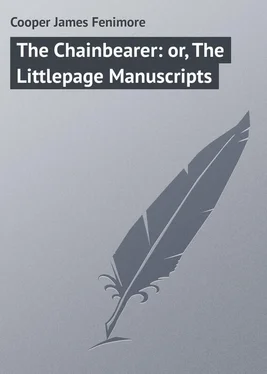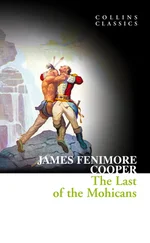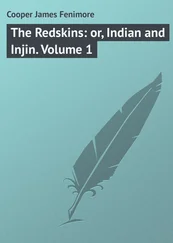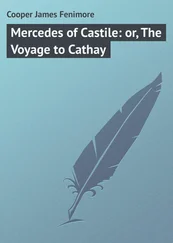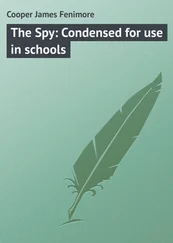James Cooper - The Chainbearer - or, The Littlepage Manuscripts
Здесь есть возможность читать онлайн «James Cooper - The Chainbearer - or, The Littlepage Manuscripts» — ознакомительный отрывок электронной книги совершенно бесплатно, а после прочтения отрывка купить полную версию. В некоторых случаях можно слушать аудио, скачать через торрент в формате fb2 и присутствует краткое содержание. Жанр: foreign_prose, на английском языке. Описание произведения, (предисловие) а так же отзывы посетителей доступны на портале библиотеки ЛибКат.
- Название:The Chainbearer: or, The Littlepage Manuscripts
- Автор:
- Жанр:
- Год:неизвестен
- ISBN:нет данных
- Рейтинг книги:5 / 5. Голосов: 1
-
Избранное:Добавить в избранное
- Отзывы:
-
Ваша оценка:
- 100
- 1
- 2
- 3
- 4
- 5
The Chainbearer: or, The Littlepage Manuscripts: краткое содержание, описание и аннотация
Предлагаем к чтению аннотацию, описание, краткое содержание или предисловие (зависит от того, что написал сам автор книги «The Chainbearer: or, The Littlepage Manuscripts»). Если вы не нашли необходимую информацию о книге — напишите в комментариях, мы постараемся отыскать её.
The Chainbearer: or, The Littlepage Manuscripts — читать онлайн ознакомительный отрывок
Ниже представлен текст книги, разбитый по страницам. Система сохранения места последней прочитанной страницы, позволяет с удобством читать онлайн бесплатно книгу «The Chainbearer: or, The Littlepage Manuscripts», без необходимости каждый раз заново искать на чём Вы остановились. Поставьте закладку, и сможете в любой момент перейти на страницу, на которой закончили чтение.
Интервал:
Закладка:
"Since you think there is a mill, out here, west of us, Sureflint," I observed, after turning the matter over in my mind, "I will go and search for it, if you will bear me company. You think you can find it, I trust, knowing the direction in which it stands?"
"Sartain – find him easy 'nough. Find stream first – den find mill . Got ear – got eye – no hard to find him. Hear saw 'fore great while."
I acquiesced, and made a sign for my companion to proceed. Susquesus was a man of action, and not of words; and, in a minute he was leading the way toward a spot in the woods that looked as if it might contain the bed of the stream that was known to exist somewhere near by, since it was laid down on the map.
The sort of instinct possessed by the Trackless, enabled him soon to find this little river. It was full of water, and had a gentle current; a fact that the Indian immediately interpreted into a sign that the mill must be above us, since the dam would have checked the course of the water, had we been above that . Turning up stream, then, my companion moved on, with the same silent industry as he would have trotted along the path that led to his own wigwam, had he been near it.
We had not been on the banks of the stream five minutes, before the Trackless came to a dead halt; like one who had met an unexpected obstacle. I was soon at his side, curious to know the motive of this delay.
"Soon see mill, now," Susquesus said, in answer to an inquiry of mine. "Board plenty – come down stream fast as want him."
Sure enough, boards were coming down, in the current of the river, much faster than one who was interested in the property would be apt to wish; unless, indeed, he felt certain of obtaining his share of the amount of sales. These boards were neither in rafts, nor in cribs; but they came singly, or two or three laid together, as if some arrangement had been made to arrest them below, before they should reach any shoals, falls, or rapids. All this looked surprisingly like a regular manufacturer of lumber, with a view to sales in the markets of the towns on the Hudson. The little stream we were on was a tributary of that noble river, and, once in the latter, there would be no very material physical obstacle to conveying the product of our hills over the habitable globe.
"This really looks like trade, Sureflint," I said, as soon as certain that my eyes did not deceive me. "Where there are boards made, men cannot be far off. Lumber, cut to order, does not grow in the wilderness, though the material of which it is made, may."
"Mill make him. Know'd mill, when hear him. Talk plain 'nough. Pale-face make mill, but red man got ear to hear wit'!"
This was all true enough; and it remained to ascertain what was to come of it. I will acknowledge that, when I saw those tell-tale boards come floating down the winding little river, I felt a thrilling of the nerves, as if assured the sight would be succeeded by some occurrence of importance to myself. I knew that these lawless lumbermen bore a bad name in the land, and that they were generally regarded as a set of plunderers, who did not hesitate to defend themselves and their habits, by such acts of violence and fraud as they fancied their circumstances justified. It is one evil of crime, where it penetrates masses, that numbers are enabled to give it a gloss, and a seeming merit, that unsettle principles; rendering the false true, in the eyes of the ignorant, and generally placing evil before good. This is one of the modes in which justice vindicates itself, under the providence of God; the wrongs committed by communities reacting on themselves, in the shape of a demoralization that soon brings its own merited punishment.
There was little time for speculation or conjecture, however; for, resuming our march, the next bend in the river brought into view a reach of the stream in which half a dozen men and lads were at work in the water, placing the boards in piles of two or three, and setting them in the current, at points favorable to their floating downward. Booms, connected with chains, kept the confused pile in a sort of basin beneath some low cliffs, on the margin of which stood the expected saw-mill itself. Here, then, was ocular proof that squatters were systematically at work, plundering the forests of which I was in charge, of their most valuable trees, and setting everything like law and right at defiance. The circumstances called for great decision, united with the utmost circumspection. I had gone so far, that pride would not suffer me to retreat, had not a sense of duty to my father and Colonel Follock, come to increase the determination to go on.
The reader may feel some desire to know how far Dus mingled with my thoughts, all this time. She was never absolutely out of them, though the repulse I had met in my affections gave an impetus to my feelings that rendered me more than usually disposed to enter on an adventure of hazard and wildness. If I were naught to Ursula Malbone, it mattered little what else became of me. This was the sentiment that was uppermost, and I have thought, ever since, that Susquesus had some insight into the condition of my feelings, and understood the cause of the sort of desperation with which I was about to rush on danger. We were, as yet, quite concealed, ourselves; and the Indian profited by the circumstance, to hold a council, before we trusted our persons in the hands of those who might feel it to be their interest to make away with us, in preference to permitting us ever to see our friends again. In doing this, however, Sureflint was in no degree influenced by concern for himself, but solely by a desire to act as became an experienced warrior, on a very difficult war-path.
"S'pose you know," said Sureflint. "'Em no good men – Varmount squatter — you t'ink own land — dey t'ink own land. Carry rifle and do as please. Best watch him."
"I believe I understand you, Susquesus, and I shall be on my guard, accordingly. Did you ever see either of those men before?"
"T'ink have. Must meet all sort of men, when he go up and down in 'e wood. Despret squatter, dat ole man, out yonder. Call himself T'ousandacre – say he alway own t'ousand acre when he have mind to find him."
"The gentleman must be well provided with estates! A thousand acres will make a very pretty homestead for a wanderer, especially when he has the privilege of carrying it about with him, in his travels. You mean the man with gray hairs, I suppose – he who is half dressed in buckskin?"
"Sartain; dat ole T'ousandacre – nebber want land – take him where he find him. Born over by great salt lake, he say, and been travel toward setting sun since a boy. Alway help himself – Hampshire Grant man, dat . But, major, why he no got right, well as you?"
"Because our laws give him no right, while they give to the owner in fee, a perfect right. It is one of the conditions of the society in which we live, that men shall respect each other's property, and this is not his property, but mine – or rather, it is the property of my father and Colonel Follock."
"Best not say so, den. No need tell ebberyt'ing. No your land, say no your land. If he t'ink you spy, p'raps he shoot you, eh? Pale-face shoot spy; red man t'ink spy good feller!"
"Spies can be shot only in time of war; but, war or peace, you do not think these men will push matters to extremities? They will be afraid of the law."
"Law! What law to him? Nebber see law – don't go near law; don't know him."
"Well, I shall run the risk, for hunger is quite as active just now as curiosity and interest. There is no necessity, however, for your exposing yourself, Sureflint; do you stay behind, and wait for the result. If I am detained, you can carry the news to Chainbearer, who will know where to seek me. Stay you here, and let me go on alone – adieu."
Читать дальшеИнтервал:
Закладка:
Похожие книги на «The Chainbearer: or, The Littlepage Manuscripts»
Представляем Вашему вниманию похожие книги на «The Chainbearer: or, The Littlepage Manuscripts» списком для выбора. Мы отобрали схожую по названию и смыслу литературу в надежде предоставить читателям больше вариантов отыскать новые, интересные, ещё непрочитанные произведения.
Обсуждение, отзывы о книге «The Chainbearer: or, The Littlepage Manuscripts» и просто собственные мнения читателей. Оставьте ваши комментарии, напишите, что Вы думаете о произведении, его смысле или главных героях. Укажите что конкретно понравилось, а что нет, и почему Вы так считаете.
